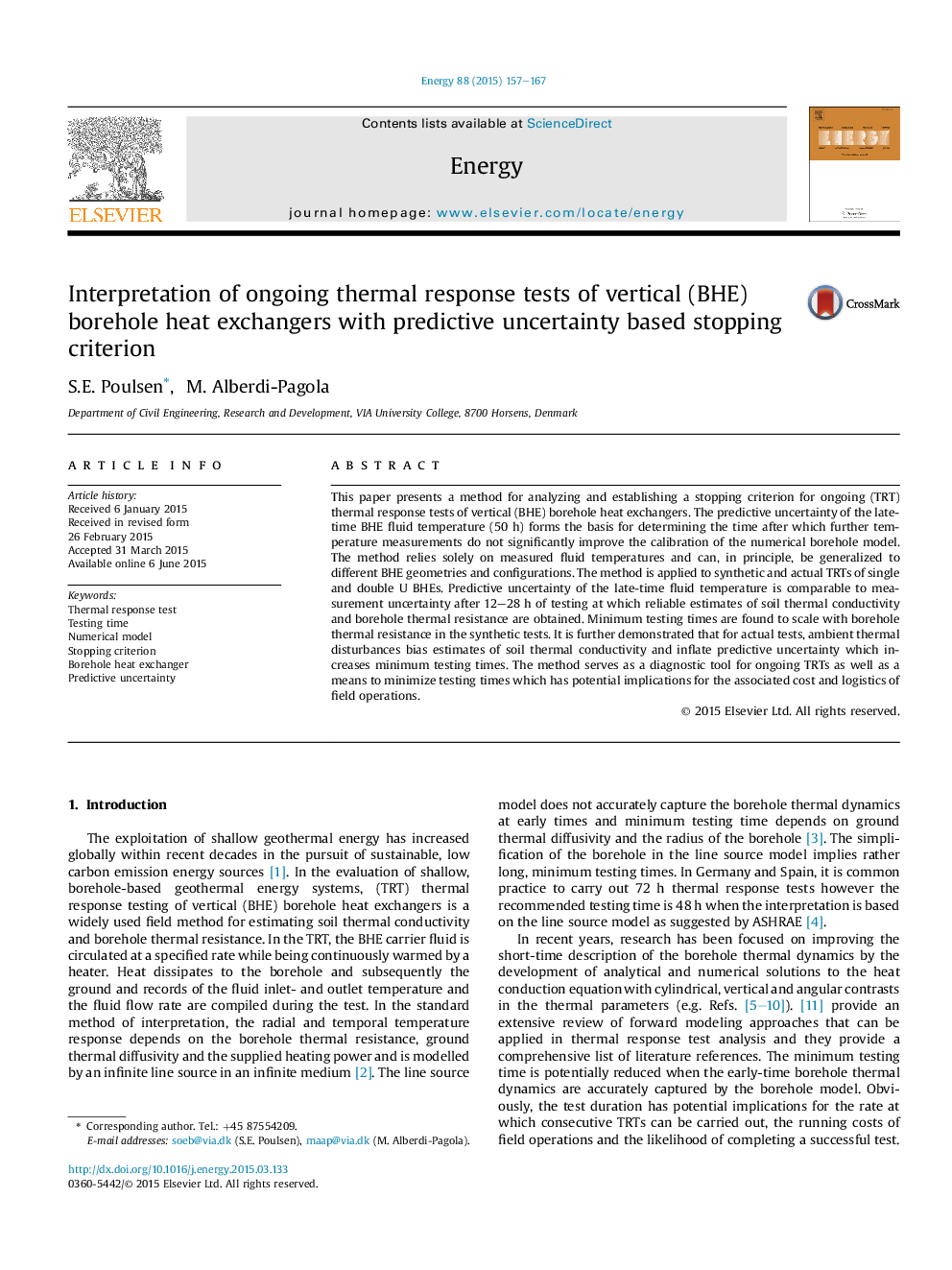| Article ID | Journal | Published Year | Pages | File Type |
|---|---|---|---|---|
| 1732132 | Energy | 2015 | 11 Pages |
Abstract
This paper presents a method for analyzing and establishing a stopping criterion for ongoing (TRT) thermal response tests of vertical (BHE) borehole heat exchangers. The predictive uncertainty of the late-time BHE fluid temperature (50 h) forms the basis for determining the time after which further temperature measurements do not significantly improve the calibration of the numerical borehole model. The method relies solely on measured fluid temperatures and can, in principle, be generalized to different BHE geometries and configurations. The method is applied to synthetic and actual TRTs of single and double U BHEs. Predictive uncertainty of the late-time fluid temperature is comparable to measurement uncertainty after 12-28 h of testing at which reliable estimates of soil thermal conductivity and borehole thermal resistance are obtained. Minimum testing times are found to scale with borehole thermal resistance in the synthetic tests. It is further demonstrated that for actual tests, ambient thermal disturbances bias estimates of soil thermal conductivity and inflate predictive uncertainty which increases minimum testing times. The method serves as a diagnostic tool for ongoing TRTs as well as a means to minimize testing times which has potential implications for the associated cost and logistics of field operations.
Keywords
Related Topics
Physical Sciences and Engineering
Energy
Energy (General)
Authors
S.E. Poulsen, M. Alberdi-Pagola,
